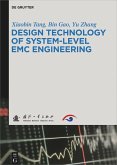Despite the continuous development of electrochemical battery technology and the multitude of electric buses on offer, it is still not possible to exploit electric buses in urban transport on an all-day basis without the necessity of charging them. It is therefore necessary to build point-to-point contact charging stations or induction charging stations at the terminals. This will result in substantial financial outlays connected with the construction of the charging stations, and the need to extend stopping times at the terminals; there are also problems which could arise regarding the situations where the bus routes are. The alternative solution is a Dynamic Charging System of electric vehicles, also known as In Motion Charging (IMC).
This book is devoted to the dynamic charging of electric buses using a trolleybus traction network. It was based on the author's scientific and research work carried out into the Gdynia trolleybus network. The requirements and limiting parameters for the infrastructure of the transport system based on dynamic loading are presented.
This book is devoted to the dynamic charging of electric buses using a trolleybus traction network. It was based on the author's scientific and research work carried out into the Gdynia trolleybus network. The requirements and limiting parameters for the infrastructure of the transport system based on dynamic loading are presented.








